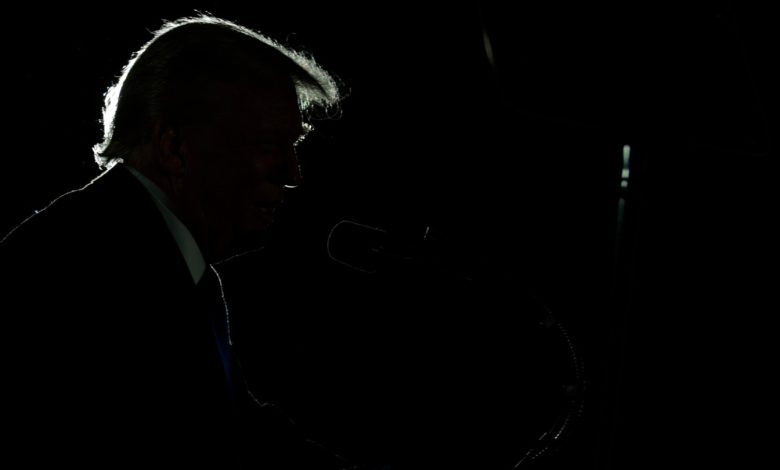“Everyone Loses”: Trump’s Movie Tariffs Plan Catches Hollywood Off Guard

Hollywood should have seen this coming. After starting trade wars over cars and steel, solar panels and washing machines, Donald Trump has added movies to the list.
POTUS’ announcement on Truth Social on May 5 that he plans to slap a 100 percent tariff on films “coming into our country produced in foreign lands” has sent shockwaves through the global entertainment industry.
The plan — if a 113-word post, much of it written in screaming all-caps and also walked back by a White House spokesperson, can be considered a plan — appears to be to try and force the studios to shoot more movies in America by imposing a levy on tentpoles that shoot abroad, in countries like Canada, the U.K., Spain and Australia, and take advantage of local tax incentives there.
Even if such a tariff were legal — and there is some debate about whether Trump has the authority to impose such levies — industry experts are baffled as to how, in practice, a “movie tariff” would work.
“What exactly does he want to put a tariff on: A film’s production budget, the level of foreign tax incentive, its ticket receipts in the U.S.?” asks David Garrett of international film sales group Mister Smith Entertainment.
Details, as so often with Trump, are vague. What precisely constitutes a “foreign” production is unclear. Does a production need to be majority shot outside America — Warner Bros’ A Minecraft Movie, say, which filmed in New Zealand and Canada, or Paramount’s Gladiator II, shot in Morocco, Malta and the U.K. — to qualify as “foreign” under the tariffs, or is it enough to have some foreign locations? Marvel Studios’ Thunderbolts*, for example, had some location shooting in Malaysia but did the bulk of its production in the U.S, in Atlanta, New York and Utah.
Does the nationality of its director, the actors, the screenwriter and the below-the-line talent play a role? Or is financing the key determiner? While tax incentives can greatly reduce production costs, most studio productions still get the majority of their funding from the U.S..
“The only certainty right now is uncertainty,” notes Martin Moszkowicz, a producer for German mini-major Constantin, whose credits including Monster Hunter and Resident Evil: The Final Chapter. “That’s not good for business.”
The main force driving runway production is the bottom line. With national tax incentives, lower costs for local crews and, in some territories, direct production subsidies for co-productions, shooting a film in Vancouver, Queensland or in Sofia, Bulgaria can be 40 to 60 percent cheaper than making the same film in L.A.
“Once you’ve shot in these places — the Czech Republic, Malta, Australia, New Zealand — you realize the quality is good, it’s actually quite cheap and the tax credits work really, really well,” says Simon Williams, a film financier with London-based group Ashland Hill Finance.
A levy punishing runaway productions may make it more expensive to shoot abroad, but it won’t make it any cheaper to shoot movies in the United States. For independent movies, notes one veteran producer, a 100 percent tariff “means most of those films just won’t get made.”
The major studios, of course, have deeper pockets, but their financing plans and production schedules, particularly for international shoots, are often years in the making. James Cameron has spent the better part of two decades building up his bespoke production hub in New Zealand to make his Avatar movies — Disney and 20th Century will release Avatar: Fire and Ash on Dec. 13 — and is set to make at least two more down under, production planned to extend through 2031. Marvel Studios just began its London shoot for Avengers: Doomsday, on May 1, and will kick off on Sony co-production Spider-Man: Brand New Day in the British capital on July 31. A little more than a month after Warner Bros. Discovery’s begins principal photography there, on June 26, on its rival comic book film Supergirl: Woman of Tomorrow.
None are likely to drop everything and come back home, just on Trump’s say-so.
“But what could happen is that the studios push the pause button and delay starting production on films they were planning to shoot outside the U.S.,” says Henning Molfenter, the former head of film and TV production at Germany’s Studio Babelsberg, who has overseen the international shoots of the Russo Brothers’ Captain America: Civil War and Lana Wachowski’s The Matrix Resurrections. “As we saw during corona and during the strikes, just pausing production can do a lot of harm to our business.”
Damage could be compounded if national governments start to match the Trump tariffs tit-for-tat, putting international box office — around two thirds of Hollywood’s revenue comes from outside the U.S. — at risk.
“Consistent with everything Trump does and says, this is an erratic, ill conceived and poorly considered action,” says Nicholas Tabarrok of Darius Films, a production house with offices in Los Angeles and Toronto. “It will adversely affect everyone. U.S. studios, distributors, and filmmakers will suffer as much as international ones. Trump just doesn’t seem to understand that international trade is good for both parties and tariffs not only penalize international companies but also raise prices for U.S. based companies and consumers. This is an ‘everyone loses, no one gains’ policy.”
Etan Vlessing contributed to this report.
Source: Hollywoodreporter
HiCelebNews online magazine publishes interesting content every day in the celebrity section of the entertainment category. Follow us to read the latest news.
Related Posts
- ‘Rocky Horror Picture Show’ Marks 50th Anniversary With 4K Remaster
- Josh Peck Says His The Last of Us Cameo Was a 'Tough Secret to Keep'
- Chappell Roan Reveals She's Considering Becoming an Actress After Legendary Director John Waters Encouraged Her
- Meet Christie Brinkley's tragic lost love before Billy Joel after ending marriage to Jean-François Allaux
- ‘Billion Dollar Spy’ Enlists Tony Goldwyn, Rufus Sewell and Justin Theroux





